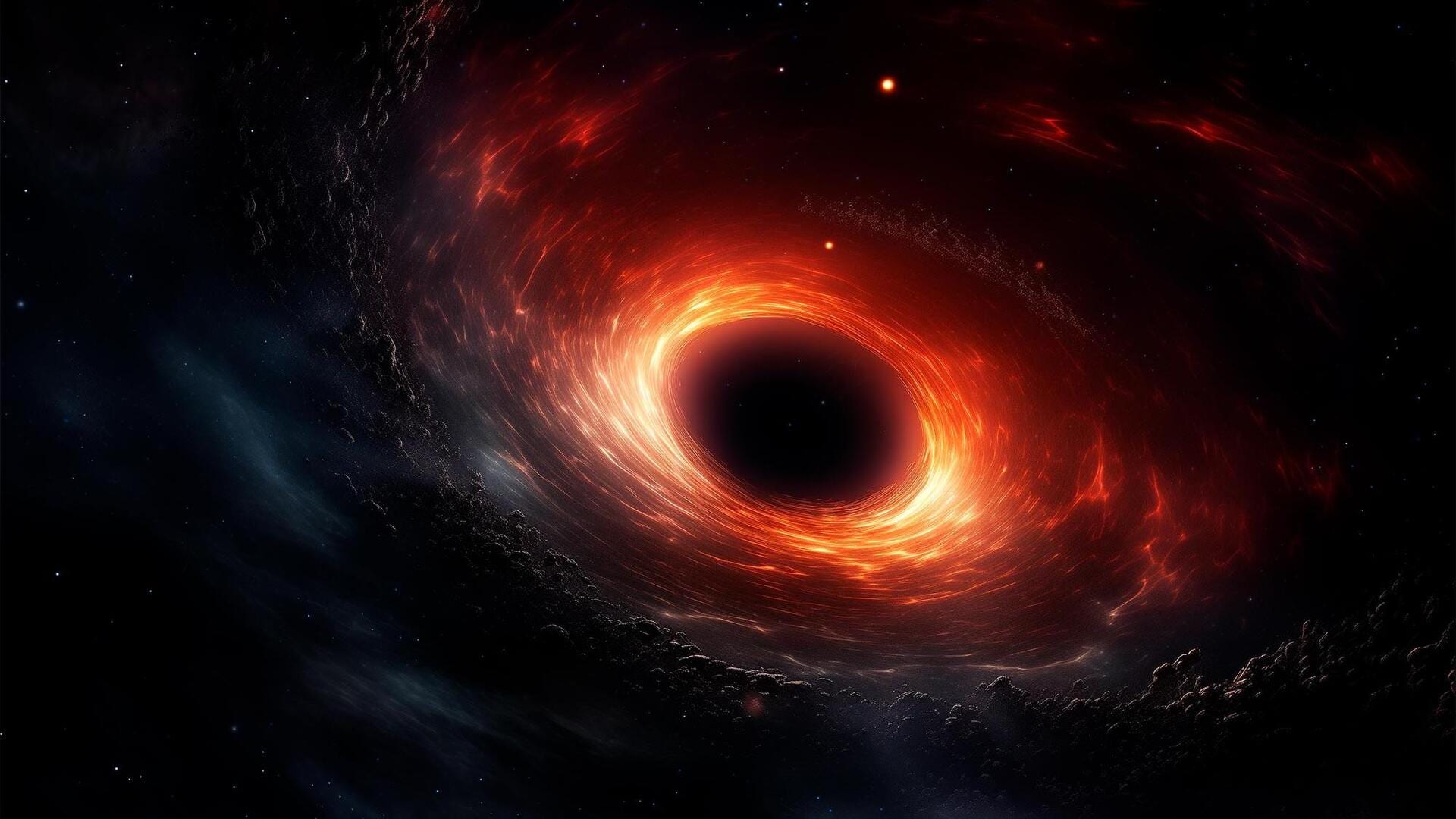
Oldest black hole discovered by James Webb Space Telescope
What's the story
A groundbreaking discovery has been made by astronomers using the James Webb Space Telescope (JWST): the universe's oldest black hole, dating back to just 400 million years following the Big Bang. This ancient black hole, found in the host galaxy GN-z11, is devouring its surroundings at an astonishing rate. Lead author of the study, Professor Roberto Maiolino from the University of Cambridge, described the finding as "a giant leap forward" in our understanding of black hole formation and growth.
What Next?
Impact on host galaxy and black hole growth
The GN-z11, is a compact galaxy roughly one hundred times smaller than the Milky Way. The black hole's rapid consumption of gas could have severe consequences for the galaxy's development by pushing gas away like an ultra-fast wind. This process could potentially halt star formation and slowly kill the galaxy while also cutting off the black hole's source of 'food,' eventually leading to its demise.
Details
Challenging existing theories on black hole formation
This newly discovered black hole, millions of times more massive than our Sun, challenges current beliefs about how black holes are formed and grow. Previously, it was thought that supermassive black holes at the center of galaxies such as the Milky Way took billions of years to reach their current size. However, this ancient black hole's immense size suggests alternative formation methods, such as being 'born big' or consuming matter at a rate five times higher than previously thought possible.
Insights
A new era in astronomy with JWST
Professor Maiolino expressed his excitement about the JWST's capabilities, calling it "the most exciting time" in his career. He compared the telescope's sensitivity, specially in the infrared range, to "upgrading from Galileo's telescope to a modern telescope overnight." The JWST's sensitivity could lead to the discovery of even older black holes in the coming years, further expanding our understanding of the universe.
Facts
Future observations and black hole formation research
Maiolino and his team plan to use future JWST observations to search for smaller 'seeds' of black holes. This may aid in untangling the different ways black holes might form, whether they grow rapidly or start large. The research was supported by the Royal Society, the European Research Council, and the Science and Technology Facilities Council (STFC), a part of UK Research and Innovation (UKRI).